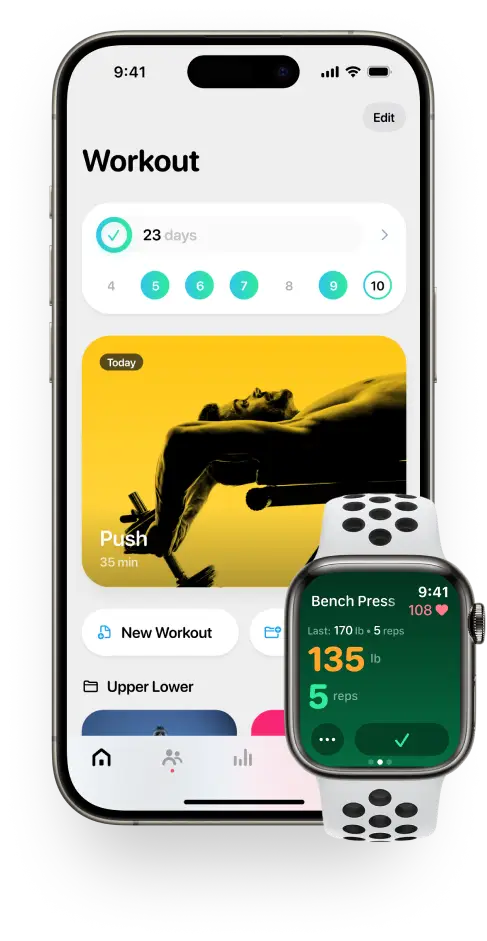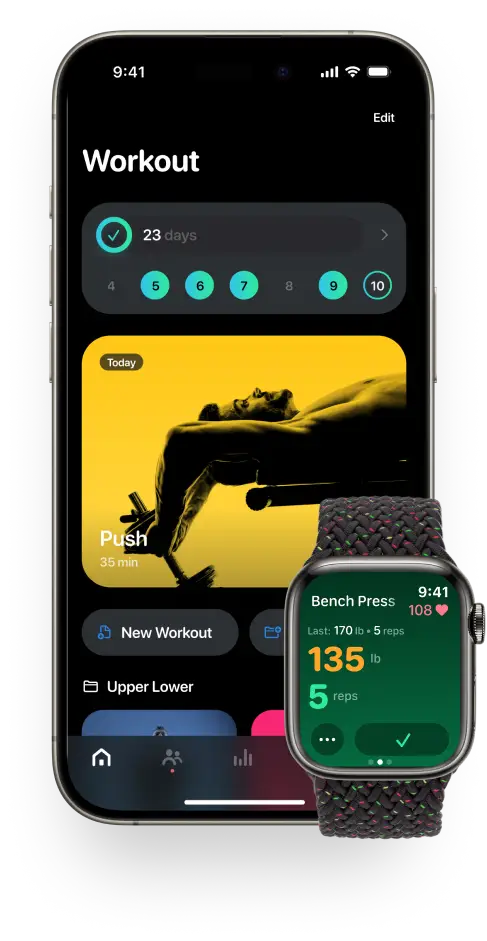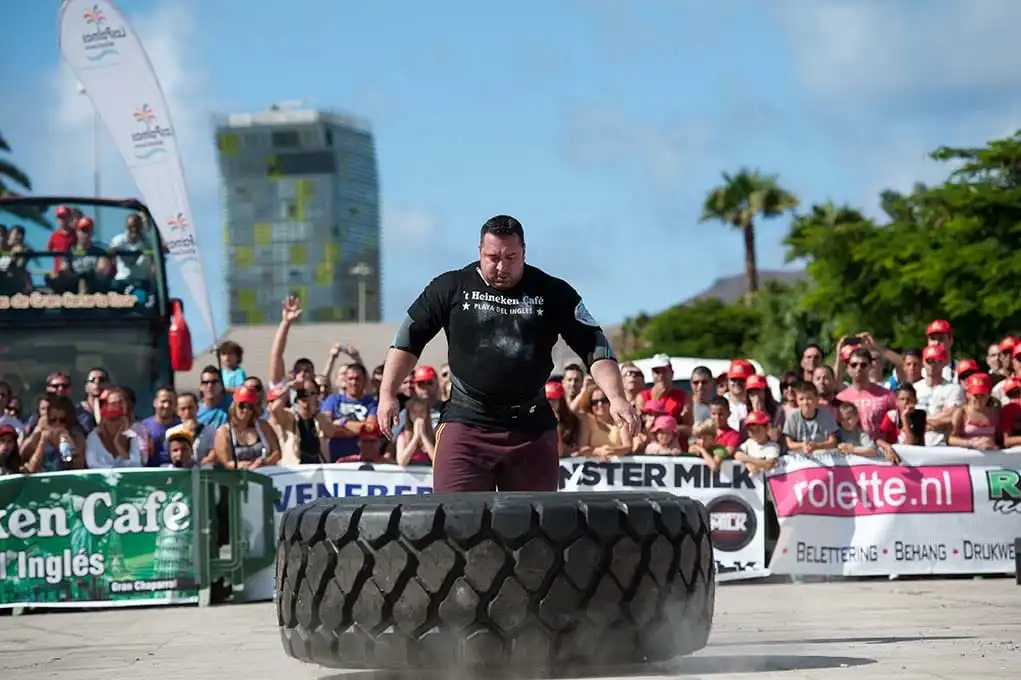Does Pre-Workout Break a Fast?
Does pre-workout break a fast? This article will explain how your body breaks a fast and what impact pre-workout has on your fasting cycles.
If you’re practicing intermittent fasting or any other fasting program, you may wonder: "Does pre-workout break a fast?" If you’re wondering whether you're allowed to have that cup of coffee or take a scoop of pre-workout powder before hitting the gym, read on.
After all, sometimes a little something in your stomach feels like the only thing that will power you through a tough workout.
If you aim to work out while your body is fasting, is taking pre-workout considered “cheating”?
Continue reading to find out.
How Does Pre-Workout Work?
Pre-workouts are supplements you take before exercising to try and boost your energy. Usually, these come as pills, powders, or capsules that you take orally before working out.
Most pre-workouts contain caffeine. But there are non-stimulant pre-workouts too.
What is Intermittent Fasting?
Long before modern industrialization, humans hunted and gathered to find their food.
You couldn’t find pre-packaged treats or fast food restaurants in ancient times. Humans would sometimes wind up going days without food. If you didn’t hunt, you didn’t eat!
Because of our evolution, humans are designed for long periods without food. This is Intermittent fasting. The term applies to any extended period without consuming calories from food or drinks.
Mark Mattson, a neuroscientist from Johns Hopkins University has studied intermittent fasting for the last 25 years. Mattson found that after more time without food, your body starts burning fat instead of sugar. This is called “metabolic switching.”
When your body switches from burning sugar (glycolysis) to fat (ketosis), you may see positive results in your body or start to feel better.
As it becomes increasingly difficult to maintain a healthy weight, especially in North America, research by Mattson and other researchers shows that intermittent fasting may have positive effects on the human diet that can lead to weight loss.
With smaller eating windows, you’re more likely to take in fewer calories overall.
Does Intermittent Fasting Work?
If you hope to lose weight by intermittent fasting, there is evidence that intermittent fasting may lead to some weight loss.
At the very least, there is little evidence to show that intermittent fasting causes physical or mental harm in adult populations when performed responsibly.
There is also some positive correlation between fasting periods and improvements in insulin- or glucose-dependent chronic disease.
That being said, the topic is still somewhat controversial within the fitness community and more research needs to be done on the correlations between this diet and working out.
Want to start intermittent fasting? Check with your healthcare practitioner to make sure you’re a good candidate. Since there are so many ways you can apply this technique, it’s a good idea to get expert advice before you settle on the method that works for you.
Different eating patterns are suitable for different people. Make sure to factor in concerns like blood sugar levels, fasting method, insulin levels, long term side effects and your daily calorie intake.
A doctor may recommend a specific fasting pattern like alternate day fasting of only fasting on certain days of the week, depending on your health conditions.
How Does Intermittent Fasting Work?
Intermittent fasting has many potential approaches.
One method is to set a time to go without food, usually 12 or 16-hour intervals. Since most people sleep around 7 hours per night, this time can be extended on either end by pushing your breakfast to a bit later after waking.
One of the most popular ways to execute this technique is the 16:8 method. Here you spend 16 hours fasting, including during your sleep. Eating for the day takes place during an 8-hour window.

On the other end, eating an earlier dinner and cutting yourself off from eating a few hours before you sleep can help prolong your fasting time.
This is one of the simplest and most lifestyle-compatible ways to incorporate intermittent fasting into your days.
Another technique is the one-meal-a-day or OMAD method.
If you’ve got strong willpower, this one’s for you. The technique is just as it sounds. People who practice OMAD consume one large meal a day, taking in all their required calories at the same time.
Are you a good candidate for intermittent fasting? Although, as we mentioned, intermittent fasting techniques can have many health benefits, they can be dangerous. If you have anemia, low blood sugar, or certain other conditions, you may require food at more frequent intervals.
It’s always a good idea to chat with your physician or a registered dietitian if you’re thinking about making major changes to your diet.
How Do You Break a Fast?
So what does it mean to “break your fast?” Breaking a fast is when you take in a sufficient number of calories after a fast. Although technically a fast means no calories at all, there are a few items you can consume that won’t break you out of your fasted state.
These include:
- Water: Water has no calories. Throughout a fasting period, you’ll need water to stay hydrated if you’re awake.
- Coffee and tea: If you take your coffee or tea black, you can technically still stay fasted. Adding things to your caffeinated drinks like milk, cream, or sugar adds calories and can curb hunger. If you want to continue to fast, it’s best to avoid these additives.
- Broth: Clear broth or soup can be consumed during fasting periods to boost electrolytes. Often broth contains sodium that your body needs to maintain your energy.
Common Pre-Workout Ingredients
Not all pre-workouts are created equal. Depending on which supplement you take, you could be looking at very different ingredients and compositions.
Some of these are:
Caffeine
This will give you a jolt. Caffeine is one of the most popular ways to boost your energy and power through tough workouts when you feel sluggish or tired. Many commercial pre-workout powders and supplements include caffeine on the ingredient list. But you can also get caffeine through a simple cup of coffee. Many gymgoers swear by a simple cup of joe before hitting the weights. Does pre-workout make you poop? The caffeine may deliver a jolt to your bowels that gives you the urge to go.
Sweeteners
Ingredients like sugar or other sweeteners— common in pre-workout supplements— generally introduce more calories into the body so you break out of your fasted state. Be mindful of having too many sweet ingredients when you’re first breaking out of a fast. Although you may feel low in energy and think a sugar rush will help, introducing too much sugar can cause your energy to spike and quickly crash.
Amino Acids
Amino acids are the building blocks that make up proteins within the body. Although many amino acids can be synthesized naturally in your body, some essential amino acids come only from your diet. If you’re not getting enough amino acids directly through the food you eat, supplementing to make sure you’re getting enough (including in your pre-workout) can be a good option.
How Can Pre-Workout Help Your Fasting?
Can a pre-workout improve the way you feel during a fast? Although most pre-workouts are low-calorie compared to your food, some of them can potentially help improve your energy, allowing you to fast for longer periods.
Caffeine-heavy pre-workouts, for example, are energy boosters. By taking this type of supplement, you may feel more alert for longer. Prolonging a fast can feel easier if you’re feeling wakeful than if you’re feeling tired.
Does Pre-Workout Break a Fast?
You may have guessed it but this is very ingredient-dependent. What is your pre-workout made of? If you’ve got a supplement with a lot of sugar, sweeteners, or additives, it’s likely that taking pre-workout would break a fast.
If your pre-workout does not create an insulin response within your body, Things like caffeine won't necessarily remove you from your fasting state.
What Are the Benefits of Working Out Fasted?
We’re talking about what breaks your fast, but the question begs: is it best to work out fasted?
Some studies support this. A study by the Open Access Journal of Sports Medicine found that working out in a fasted state increased lipolysis. This is burning fat rather than sugar for energy.
Big Picture
Intermittent fasting has some great health benefits, including putting your body in a state of ketosis more easily. This uses your fat stores, not sugar, to burn energy so you start to diminish body fat.
Taking some pre-workout, even before a fasted gym session can be beneficial and help you feel more alert during the workout.
Although depending on the ingredients that may be in your supplements it could technically be considered “breaking the fast” the amount of pre-workout you’re taking probably doesn’t have a significant enough amount of calories to disrupt your empty stomach.
If it feels good for your body, fueling up with a coffee or scoop of pre-workout can boost your willpower, so feel free to include pre-workout in your regimen, even if you follow an intermittent fasting plan.
To learn more about supplements and how they affect your body, check out our articles
- Is Pre-Workout Good for Cardio
- Can You Mix Creatine with Protein Powder
- Can Protein Powder Go Bad
- How Is Protein Powder Made
- What Happens If You Take Fat Burners Without Working Out
- Does Creatine Expire
Get your pre-workout ready. Flex AI offers an all-in-one workout platform to help you learn new exercises, visualize your fitness journey, and keep all your PRs in one place. We’ve made it simple to work on customized fitness plans or to introduce a little friendly competition to your fitness community by sharing exercises with your friends. Get started for free through the Flex fitness app.
Related articles
Does Creatine Help With Weight Loss
How Is Protein Powder Made? Whey, Casein and Vegan Proteins
Supplement Snapshot: Can Protein Powder Go Bad?


Get fit with Flex
Build muscle & lose weight fast for free.
Available on iPhone + Apple Watch





